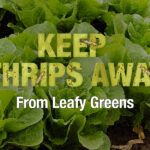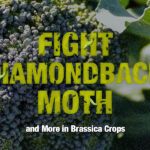Science Supports Sustainability
Syngenta is committed to accelerating innovation for farmers and nature while improving productivity.

Listening is one of the most important things we can do. We can learn so much about others’ perspectives and how we can improve as communicators when we listen to one another. In agriculture, we are often so passionate about our solutions and contributions that we need to pause and listen from time to time to really know how to explain our work and the benefits we bring to society.
Meaningful conversations with consumers are one of the most important things we can do as agriculture professionals and advocates. We must point to sound science and data-based outcomes when having discussions, but also lean into consumers’ perspectives and adapt our discussions to better engage them. Our agricultural solutions contribute greatly to society, but we need to take the time to tell those stories with science in a way that makes sense to audiences outside of agriculture.
Atrazine is an excellent example of working through a rigorous scientific process to achieve measurably better environmental outcomes — a story that needs to be told. Atrazine helps corn growers, among others, increase the benefits of conservation tillage to build healthy soils on their farms, improve air and water quality, and boost profit potential. Conservation tillage can decrease soil erosion by 34%. These are all great sustainable agriculture outcomes that ultimately benefit society as a whole.
While sustainability is often interpreted in many ways, it must always be grounded in an equal balance of economic, environmental and societal outcomes — and science can help us better define sustainability.
To help farmers track their efforts and measure greater sustainability outcomes, Syngenta created the Cropwise™ Sustainability app and the Sustainable Outcomes in Agriculture Standard. The mobile phone app helps farmers track practices from their farms quickly and easily to document their sustainability leadership while identifying opportunities for continuous improvement of their operations. Aligning tools like these with the needs of farmers and their individual agronomic practices will ensure future success and provide a consistent language to showcase sustainable agriculture on their farm.
While sustainability is often interpreted in many ways, it must always be grounded in an equal balance of economic, environmental and societal outcomes — and science can help us better define sustainability. Syngenta is committed to accelerating innovation for farmers and nature while improving productivity, all in service of meeting the needs of an ever-growing world.
Val Dolcini
Head, Business Sustainability and Government Affairs, North America
2 Min Read























